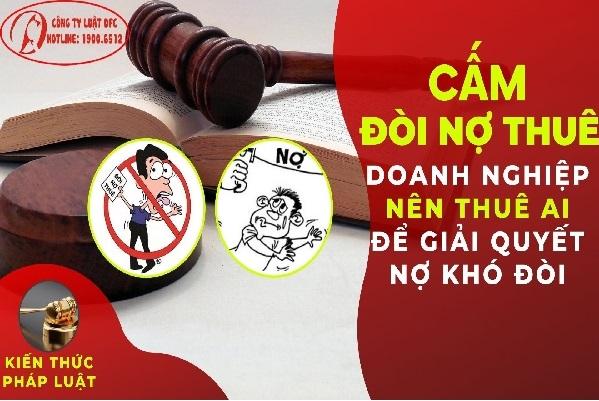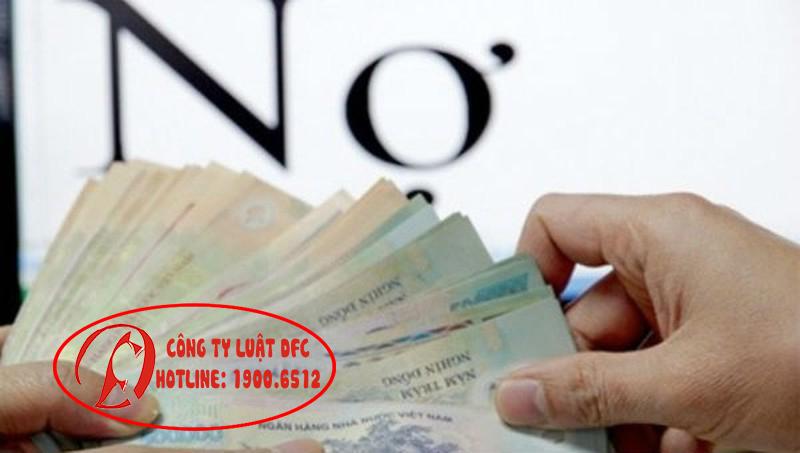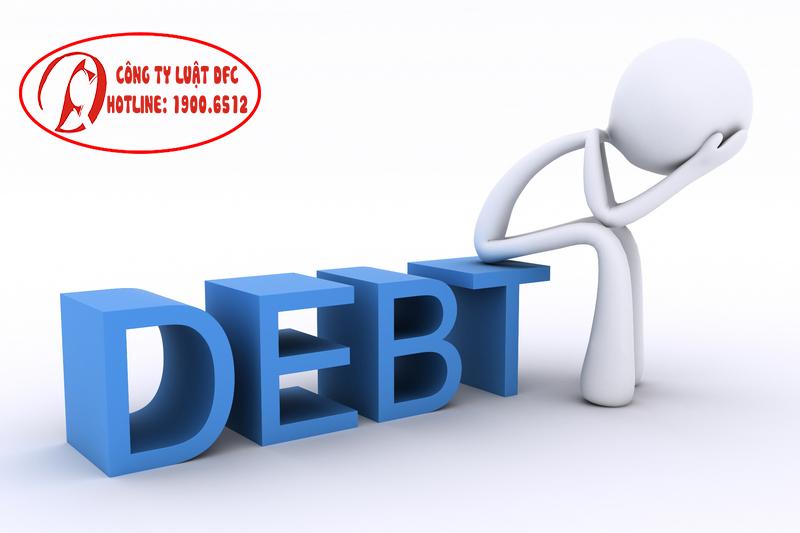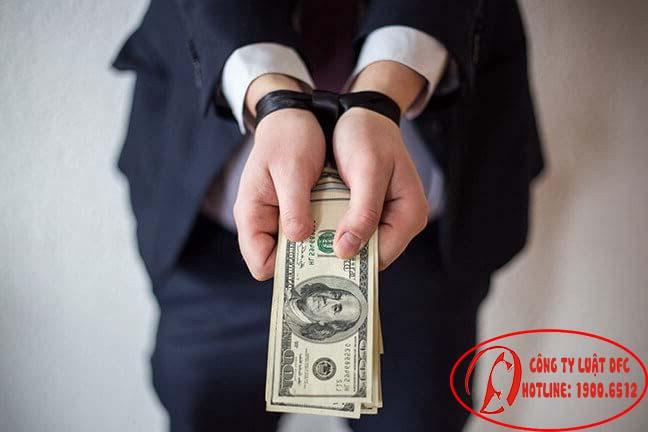"Borrowing is payable" – is the saying of the nature of travel between lenders, lenders and borrowers. This borrowing is based on written, oral and even mutual trust. However, in social life, borrowers do not always pay back what they have borrowed, borrowing in accordance with the agreed commitments. That is very easy to make lenders, lenders in case of "risk" to the amount or artifacts in the hands of others. So how to borrow money without paying? What crime does the debt not pay?, how much debt is criminally prosecuted, DFC Law Consulting Would like to answer your questions through the following article:

Legal grounds
- The Penal Code 2015 amended in 2017 No. 01/VBHN - VPQH of the National Assembly of the Socialist Republic of Vietnam;
- Civil Code 2015 No. 20/2015/L - CTN of the National Assembly of the Socialist Republic of Vietnam.
Contents of consultation
1. "Payable loan" is a principle legalized in accordance with the law
Payable loans are rights permitted in accordance with the law, specifically in the civil domain. Borrowing money and borrowing money is understood specifically under the Civil Code 2015 as a form of asset loan contract, under which the lender and the borrower will exercise their rights and obligations.
Regarding the borrower's obligation to pay is specified in Article 466 of the Civil Code 2015 as follows:
- The borrower of the property is the money, the full amount must be paid when it is due (if the parties agree on the time of the loan term);
- If the property is in objects, it must be paid in quantities and quality as at the time of borrowing if the parties do not otherwise agree;
- In case of failure to pay by objects, they may be converted in cash at the time of borrowing or borrowing hills to pay if agreed by the lender or lender.
Note:borrowing money without paying but they do not deliberately evade the obligation to pay or do not use the money for illegal purposes still make the provision, answering your information and affirming that he/she will still pay, he/she does not have enough factors const in accordance with the criminal law that the lender only has the right to require the borrower to pay interest to him/her (including interest in the term and overdue period of borrowing and borrowing money) in accordance with the Civil Code 2015. If you are unable to get your money back through an agreement, you have the right to write a petition against the borrower to the competent People's Court to request a settlement.
2. What is the crime of non-payment of debts?
In accordance with applicable criminal law, a person will be prosecuted for criminal liability if he or she fully meets the elements constwaying the crime of a crime specified in the 2015 Criminal Code. Specifically, for non-payment of loans,if the borrower shows signs of evading obligations or using the money borrowed for illegal purposes, he/she may be prosecuted for criminal liability for abusing trust in appropriating property as prescribed in Article 175 of the 2015 Criminal Code as amended in 2017.
Accordingly, borrowers who commit one of the following acts as prescribed in Article 175 of the 2015 AdditionalLy Amended Criminal Code 2017 will be prosecuted for criminal liability for this crime as follows:
- Borrowing, borrowing or renting other people's property or receiving other people's property in the form of contracts and using deceitful tricks to appropriate such property or the time limit for returning the property despite conditions and abilities but deliberately not paying;
- Borrowing, borrowing, renting other people's property or receiving other people's property in the form of contracts and having used such property for illegal purposes resulting in the inability to return the property.
The maximum penalty for this offence is 20 years. In addition, borrowers are subject to additional penalties such as fines of between 10 million and 100 million dong, prohibition from holding certain functions, practicing certain professions or doing certain jobs for 01 to 05 years or confiscating part or all of their assets.
3. How much debt is owed to criminal prosecution?
What crime does a non-payment loan commit? Previously, under the provisions of the 1999 Criminal Code amended in 2009, the lack of debt without payment but evading obligations or being unable to contact will be prosecuted for criminal liability under Article 140.
Currently, in accordance with Article 175 of the 2015 Criminal Code amended in 2017 on the misuse of trust and appropriation of assets that the borrower does not repay but performs the evasion of the obligation to pay or use such money for illegal purposes, the amount not paid will be one of the factors consting this crime, specifically:
- The amount of appropriation of others is worth from VND 4 million to less than VND 50 million;
- The amount of appropriation of others is worth less than VND 4 million but has been sanctioned for administrative violations of acts of appropriation or has been convicted of this crime or for one of the crimes specified in article 168, 169, 170, 171, 172, 173, 174 and 290 of this Code, which have not been cleared of criminal records but also violated or property as the main means of earning a living harm or property of special spiritual value to the victim.
So how many criminal prosecutions, from 4 million or more will be prosecuted criminally.
Hope the above article is useful to you. Sincerely!






